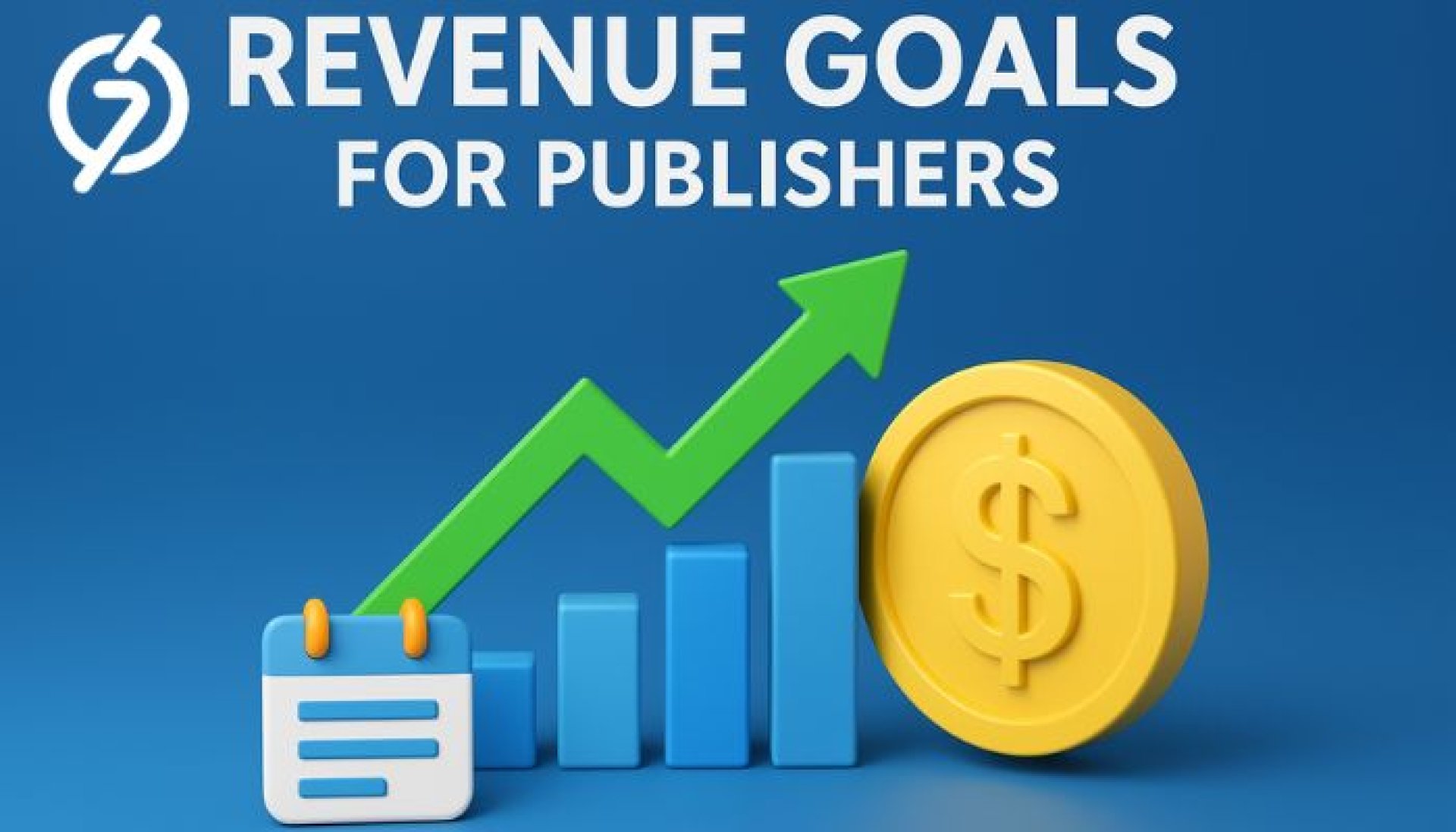How Smart Publishers Hit Revenue Goals

If you’ve ever tried to make a steady income from your crypto site, you know it’s not just about getting traffic. It’s about making that traffic work for you — turning clicks, reads, and returning visitors into something that pays the bills (and ideally, more).
Many publishers start with big dreams but soon realize that hitting consistent revenue numbers feels like chasing a moving target. The question isn’t just “How do I earn?” — it’s “How do I set and actually reach realistic revenue goals for publishers in this fast-changing crypto space?”
Pain Point
Here’s the reality: crypto content is a goldmine for attention, but that attention doesn’t automatically translate into income. You can have 50,000 monthly visits and still make less than someone with a much smaller, better-optimized audience.
Why? Because without a clear revenue strategy, traffic is just a number. Many crypto publishers:
- Don’t track how much each visitor is worth
- Rely on one ad network or one monetization method
- Set vague, “hope-based” goals instead of measurable targets
- Struggle to balance user experience with earning potential
This lack of structure leads to the same frustrating loop — some months you hit a number that feels great, then the next month drops without explanation. That’s exhausting.
Personal Test / Insight
When I first experimented with monetizing a crypto blog, I thought revenue would simply “scale” with traffic. More readers, more money — right?
It didn’t quite work that way. I had ads running, but they weren’t optimized. My content brought in curious visitors, but not the kind advertisers valued most. My “revenue goal” back then was basically “more than last month,” which isn’t a plan — it’s a guess.
What changed things for me was breaking down my earnings into measurable parts. I started asking:
- How much is one click worth to me?
- Which pages or topics attract higher-paying ads?
- Which countries bring in better CPM or CPC rates?
- How many conversions do I actually need to hit a set monthly figure?
When I looked at it that way, I could finally set goals based on data, not hope.
Soft Solution Hint
The smartest crypto publishers treat their revenue goals like a business plan. That doesn’t mean it needs to be overly technical — it just means you set a number and know the steps to get there.
For example: if your goal is $1,000 a month, and you earn an average of $0.05 per click, you know you need 20,000 high-quality ad clicks. That leads you to focus on optimizing for clicks, not just views.
A lot of this comes down to working with the right monetization partners — ones that actually understand the crypto niche and deliver ads that match your audience’s intent. That way, your revenue goals aren’t just theoretical; they’re achievable.
One practical step? Sign up with a reliable monetization option that’s built for publishers in your niche. The difference between a generic ad network and a crypto-focused one can be the difference between scraping by and hitting your numbers consistently.
Breaking Down Revenue Goals for Publishers
If “revenue goals” sound too corporate, think of them as your earnings roadmap. Here’s how to set them in a way that makes sense:
Start with Your Minimum Viable Income
This is the amount you need to keep your site running (hosting, domain renewals, content production) plus whatever you expect to take home. If you don’t know your break-even point, you can’t measure success.
Understand Your Monetization Mix
Don’t put all your income hopes on one source. Blend display ads, sponsored content, affiliate links, and possibly premium memberships. In the crypto space, ad networks can pay significantly more if your audience is targeted.
Measure in Smaller Units
If you want $2,000 a month, break it into $500 a week. If a week falls short, you can adjust before the month ends. This gives you control instead of surprises.
Track What Matters
CPM (cost per thousand views) and CPC (cost per click) are useful, but also track engagement — time on site, bounce rate, and repeat visits. A loyal audience usually brings in more ad value over time.
Adjust for Market Shifts
Crypto is volatile, and so are ad rates. Review your numbers monthly and adapt. The goal isn’t to cling to one plan forever — it’s to refine your strategy as conditions change.
Why Crypto Publishers Have a Unique Advantage
While all publishers face the challenge of converting traffic into income, crypto sites have a particular edge: high advertiser interest.
Brands in blockchain, exchanges, wallets, and DeFi platforms are constantly looking for placements in trusted crypto-focused spaces. This means your ad inventory can be more valuable than general-topic sites — if you align with the right partners.
The key here is relevance. If your audience is reading about Ethereum staking, they’re far more likely to click on a staking platform ad than a generic finance banner. This boosts your CTR (click-through rate) and ultimately your earnings.
Wrapping It Up
A strong income strategy isn’t about working harder; it’s about working smarter. Instead of chasing random traffic spikes, set revenue goals for publishers that are specific, measurable, and backed by a plan.
If you know how many clicks, conversions, or ad impressions you need to hit your number, you stop guessing and start growing. Pair that with a monetization partner who understands crypto audiences, and you’ll have a stable base to build on — even when market conditions shift.
The bottom line:
- Know your numbers
- Diversify income streams
- Match monetization to your audience’s intent
- Adjust quickly when the data tells you to
Do that, and those revenue goals won’t feel like dreams — they’ll feel like milestones you can actually reach.


